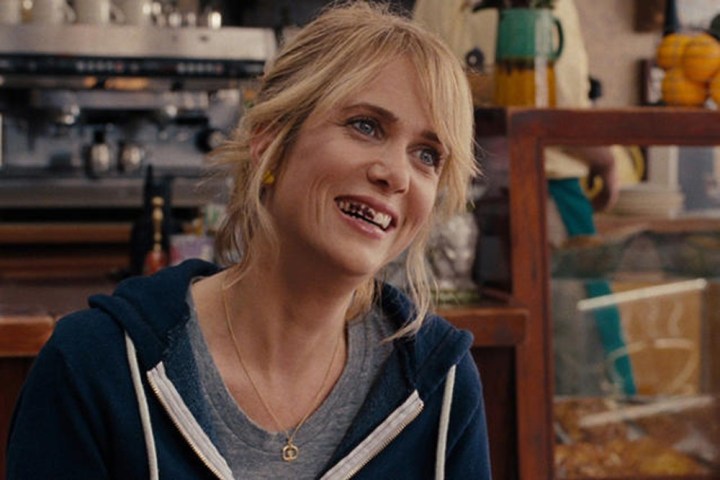
Part of the pleasure of the Academy Awards is pointing out all the times they got it wrong over the years. Crash winning Best Picture over Brokeback Mountain in 2006, Judy Holliday winning over Bette Davis and Gloria Swanson in 1951 … these are the moments that incite great debate and endless chatter.
But what about the performances and films that weren’t even nominated? Oscar has shunned some pretty memorable performances over the years, and we’ve highlighted five particularly egregious examples of snubbing that can’t go unnoticed.
Need more Oscar recommendations? Check out how to watch the 2024 Oscars for free, 2024 Oscar predictions, 10 biggest Oscar snubs ever, 10 best Oscar-winning movies ever, 10 most Oscar-nominated movies ever, and 5 great Oscar-winning movies on Amazon Prime Video.
5. Javier Bardem, Skyfall (2012)

The James Bond movie franchise has had its share of memorable villains: Oddjob from Goldfinger, May Day from A View to a Kill, and, of course, Blofeld from about a half-dozen 007 pictures. But there’s only one Bond villain who was great not because of a gimmick like a golden gun or a superficial visual flourish like a set of steel teeth: Javier Bardem’s Raoul Silva, an enemy so scary he made most audiences genuinely believe James Bond could die at the end of Skyfall.
The British superspy didn’t, of course, but Bardem deserved credit, and an Oscar nomination, for bringing such depths of complexity and tragedy to a character who seemed straight out of Shakespeare. Here’s a villain who is not only menacing, but strangely relatable; you understand why he hates Bond so much, and you can’t really blame him for wanting revenge. Bardem was recognized by SAG with a nomination for Best Supporting Actor, but he should’ve been the first actor from a Bond movie to be honored with an Academy Award nod.
4. Cher, Mask (1985)

Even though she’s won an Oscar, Cher still doesn’t get the respect she deserves as an actress. She won her Academy Award for Moonstruck, a film that still holds up as one of the greatest romantic comedies ever made, and showed her dramatic chops in supporting roles like Robert Altman’s Come Back to the Five and Dime, Jimmy Dean, Jimmy Dean and Mike Nichols’ Silkwood opposite Meryl Streep. She’s also excelled in thrillers (Suspect), fantasy (The Witches of Eastwick), coming-of-age dramas (Mermaids), and camp classics (Burlesque).
Cher’s batting average as an actress is almost perfect (let’s just forget about Faithful, OK?), and she gave her best performance in Peter Bogdanovich’s Mask, a movie that is more remembered for its groundbreaking makeup than anything else. That’s a pity, because as Rusty Dennis, she fully embodies a complicated, messy character, and makes her sympathetic and unforgettable.
Rusty is many things: a devoted mother to a son suffering craniodiaphyseal dysplasia; a biker chick you don’t want to mess with; a girlfriend prone to fits of jealousy and anger; and an outcast who hates society just as much as it hates her. Cher’s performance won her the prestigious Best Actress Award from the Cannes Film Festival, an organization that seldom recognizes inferior work, but the Academy opted to ignore it in favor of a hammy Anne Bancroft performance (Agnes of God) and a weepy Jessica Lange in a forgettable musical biopic (Sweet Dreams).
3. Kristen Wiig, Bridesmaids (2011)

Technically, Wiig was nominated for Bridesmaids … in the Best Original Screenplay category. That nomination was deserved, but she should’ve also been recognized in the Best Actress category for her great work in the raunchy comedy. It’s pretty universally accepted that Wiig is a gifted comedienne, and she’s never been funnier than she was in the Paul Feig film. One rewatch of the infamous airplane scene (“I’m relaxed and I’m ready to paaaaarty!”) or when she’s trying to contain all of her bodily fluids at a bougie wedding dress store with ivory white carpeting (“I’m starving”) are all the proof you need that Wiig delivers a top-notch comedic performance.
What tends to go unnoticed is Wiig’s impressive dramatic skills, and they’re on full display in Bridesmaids. Her Annie is experiencing a midlife crisis; she’s broke, she’s in a terrible relationship, and her living situation is less than ideal. These situations are played for laughs, but Wiig also mines the pathos, too. Annie’s life is depressing and a bit hopeless, and Wiig doesn’t make her character simple or easy to like. It’s rare for a performance to work on both comedic and dramatic levels, and for that, Wiig deserved a Best Actress nomination.
2. Michael Stuhlbarg, Call Me By Your Name (2017)
It’s not like the Academy didn’t like Call Me By Your Name. The acclaimed Luca Guadagnino movie was nominated for four Oscars in 2018, including Best Actor for Timothée Chalamet (Dune: Part Two) and Best Picture. So it’s even more perplexing when they decided to pass on nominating Michael Stuhlbarg for Best Supporting Actor that year. Stuhlbarg played Chalamet’s on-screen father, Mr. Perlman, an erudite Classics professor who quietly witnesses his son’s first real romance with a houseguest (Armie Hammer).
Stuhlbarg’s performance was a classic supporting performance: a character with not much screen time, but just enough to suggest a whole life — and also suggestive of something deeper and more intimate. His climactic speech to Chalamet, when he reassures his son that it’s not only OK to feel the pain of heartbreak, but necessary, is one of the all-time great cinematic monologues, and would’ve made for a hell of an Oscar clip at the ceremony.
1. Anthony Perkins, Psycho (1960)

The greatest Oscar snub that ever occurred happened to Anthony Perkins, who created one of the movie’s most enduring characters ever, Norman Bates, in Alfred Hitchcock‘s seminal 1960 horror film Psycho. It’s a bit understandable why he wasn’t nominated; nothing like it had ever been done before, at least not in a mainstream Hollywood film. And while the Academy felt comfortable enough to nominate his co-star Janet Leigh, it wasn’t quite so willing to acknowledge the unsettling weirdness of Perkins’ killer mama’s boy. (If the film had come out a decade later, the actor would’ve surely been nominated, and maybe even won.)
That’s a damn shame, as the performance stands as one of the best in movie history. That sounds hyperbolic, but if you’ve seen Psycho, you won’t argue otherwise. As Vince Vaughn proved in Gus Van Sant’s awful 1998 remake, only Perkins could’ve made Norman so sweet, so complex, and so interesting to watch. Norman’s not a hero, but he’s not exactly a villain either; instead, he’s just Norman Bates, in a class entirely of his own, and that’s due to Perkins’ memorable, one-of-a-kind performance.



